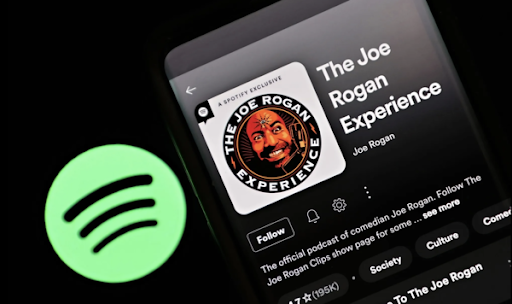Top of mind: Happy Sunday!
You’re receiving this issue early because I’ve got a date with the AFCON finals tonight. Since Nigeria’s out, I’m rooting for my Senegalese brethren, most especially Coach Aliou Cissé 🇸🇳🇸🇳
But for now, let’s get into big tech this week!
3 big things:
- India legalizes cryptocurrencies
- Nestcoin’s big raise
- Spotify’s under pressure
India’s new crypto tax

The short: India legalized cryptocurrency trading with a whopping 30% tax on any income from the transfer of virtual assets and a 1% tax deduction on payments made from purchases of digital goods.
Whole lotta money: If you’ve had chest pains from paying gas fees on Ethereum transactions, kindly offer a word of prayer for India’s crypto-maximalists who would be affected by the new tax rules. I mean, 30% is a steep price to pay for the pleasure of trading crypto – but I guess high taxes are better than a ban.
Why it matters: Following China’s decision to ban cryptocurrency trading last year, India’s lawmakers formulated a plan to rake in proceeds from its growing cryptocurrency trade. According to data from India’s top crypto-exchange app WazirX, transaction volumes exceeded $43 billion in 2021 – a 1,735 year-over-year growth from 2020. So, it’s no wonder India’s government wants a big slice from that apple.
Here’s the catch: India’s Central Bank plans to launch its own Central Bank Digital Currency (CBDC) within 18 months – positioning this as a cheaper financial option. In addition, Crypto experts believe that the massive tax bill might make the Central Bank’s CBDC more attractive to crypto traders – driving the adoption of the CBDC.
CBDCs for the win: China recently announced it raked in over $160 million from its CBDC trial, and then there’s Nigeria, which announced 188 million Naira ($451,000) from eNaira transactions in 2021. Some countries do have it better than others.Final thoughts: India’s tax bill might be as high as the Burj Khalifa, but legalizing crypto means the government recognizes the country’s crypto industry and sees the value of deFi trade on the economy, even if it means paying through your teeth to participate. Either way, it’s a win. Congratulations to all involved.
Nestcoin raises $6.45 million in pre-seed round

The short: Nigeria’s web3 startup Nestcoin raised a record-breaking $6.45 million at pre-seed to expand global operations. Huge!
Why it matters: First off, raising $6.45 million at pre-seed is a big deal. Pre-seed rounds are not considered an official fundraising round but a warm-up to the seed round. A report from DocSend puts average pre-seed raise for startups in the US at $500,188 and $416,127 globally. And if your startup is Elon Musk special, you could raise a cool $1,000,000 at pre-seed. Nestcoin is Elon Musk special.
One big thing with David Adeleke, Nestcoin’s Communications Lead. [distilled for brevity]:
On the thought process behind raising a significant amount at pre-seed:
The size of our pre-seed raise is indicative of the enormity of the task ahead, the market’s potential and scope of our vision. We are building web3 infrastructure and products beyond the traditional system. Plus, we have a capital arm where we invest in crypto products and startups like ours. Nestcoin would focus on driving adoption of web3 products in frontier markets like Asia, Latin America and Africa.
Big picture: The bane of web3 maximalists worldwide is that adoption is not growing fast enough, especially on the African continent, which usually shows up late to parties. The everyday use cases for web3 are NFTs and crypto trading, with technical jargon as infrastructure. Nestcoin’s differentiator is not its new fat bank account but its track record of launching web3 products that educate and create immersive experiences across gaming and media.
Family of products: Nestcoin launched its media blog Breach, my favourite product from the company, last year. It’s self-styled as “bite-sized and informative” for people who want to learn about web3 in simple language. The second product in its slate is Metaverse MAGNA (MVM), a crypto game that allows users to earn up to $1,000 a month. MVM could be for Africa, what Axie Infinity is to Asians, who are leaving their day jobs to play web3 games as a wealth creator.
Final thoughts: Many more web3 focused companies would need to invest in education as an adoption strategy and build products that are not only centred on trading – for people like me who want to play in the web3 space but are not traders at heart. It’s an exciting time for web3 adoption in Africa, and what better company to lead that charge than Nestcoin.
Spotify deletes old episodes of Joe Rogan’s podcast

The short: 113 episodes of Joe Rogan’s podcast have mysteriously disappeared from Spotify.
Catch up: Last week, the internet called for Joe Rogan’s head for amplifying vaccine misinformation on his podcast. In our previous newsletter, I wrote about Rockstar Neil Young pulling his catalogue from Spotify after giving the company an ultimatum to choose between him or Rogan. Spotify chose Rogan.
The update: Spotify’s CEO Daniel Ek released a statement last week, essentially choosing free speech over censorship, but this week JRE Missing, a website that detects missing episodes of Rogan’s podcast, revealed Spotify has been secretly deleting old podcast episodes – not for vaccine misinformation but Rogan’s use of the n-word. Rogan has since apologized.
CEO speaks: During a company townhall, Daniel Ek pushed back on employees over their call to deplatform Rogan. The CEO said that Rogan’s podcast in all its controversy was vital to Spotify’s future, and it’s not on the company to “dictate the course” of Rogan’s show.
Final thoughts: Covid misinformation is one thing, but using the n-word is a colossal mistake. I understand Spotify’s decision to not deplatform Rogan over misinformation, but I agree with their decision to delete the episodes with racial slurs. This is not a free speech argument.
—
That’s it for the week. I’d love to hear your thoughts about this week’s issue. Respond to this email or find me on Twitter @fatuogwuche 🙂
Ps – do us a solid by sharing the newsletter with your network of tech enthusiasts. Invite them to join the party 🙂
See you next Sunday!

